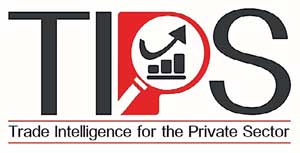20 Oct 2016 - {{hitsCtrl.values.hits}}
 A WEDF session chaired by President Maithripala Sirisena in progress
A WEDF session chaired by President Maithripala Sirisena in progress
By Anushka Wijesinha 
In Sri Lanka today, international trade forms a smaller share of our economy, and we have slipped back compared to our competitors.
Trade formed close to 80 percent of our GDP around 2005, but has since fallen to a paltry 55 percent by 2015. Compare this to Vietnam’s 170 percent, Malaysia’s 150 percent, and Thailand’s 120 percent.
When strategizing on how to reverse this trend, we need to sharpen our focus on new areas like trade facilitation and standards, which are two clear priorities emerging globally, as revealed at last week’s World Export Development Forum (WEDF) held in Colombo. In this article, we take a brief look at two key takeaways.
Standards: The new differentiator
A key insight from the WEDF was that the new generation of trade agreements such as the Trans-Pacific Partnership (TPP) are not just about tariffs, and are much more to do with standardsand regulations (quality, environmental, social, labour, etc). While the impact on firms are still hard to quantify, this shift can have an impact on SMEs given the complicated nature of regulations (due to overlapping standards set by different trading blocs) and potential higher costs associated with compliance.
Yet, there are many positives. As UNESCAP’s head of Trade and Investment Dr. Susan Stone remarked, “Standards should not be seen only as a barrier, but also a way for firms to brand themselves with high compliance”.
Standards have the ability to facilitate market access even to markets where preferential tariff advantages are not available. There is evidence that compliance helps countries retain their businesses during times of economic downturn or market volatility. We heard from top exporters that many global brands now want to know about a supplier’s credentials on standards even before they talk about price. Remarkably, it is not just developed countries focussing on this anymore. A new study by the ITC, highlighted at the Forum, revealed that the share of new voluntary sustainability standards by non-OECD countries rose up from 8 percent pre-1990 to 36 percent in 2015.
It was reported that in Sri Lanka, 58 percent of voluntary sustainability standards are based on our International Labour Organisation (ILO) commitments. More work is needed on quality certifications and environmental factors, if we are to take full advantage of the global trends towards standards.
Trade facilitation: A game changer
It is now widely acknowledged that reforms to trade facilitation can produce early wins for a country, with catalytic impacts on its international trade. The forum highlighted the particular importance for small countries in focussing on reforms to trade facilitation and logistics.
According to the Donia Hammami, Vice President of the Global Alliance on Trade Facilitation (an initiative anchored to the International Chamber of Commerce), the estimated benefits of implementing the WTO Trade Facilitation Agreement are bigger than the removal of all remaining tariffs, and it can bring about a 15 percent fall in costs of international trade. Yet, while trade facilitation issues are well known by governments, it needs political commitment to implement.
We heard from government officials that the Sri Lankan Government has embarked on a series of trade facilitation measures, including changing the dated ‘Customs Ordinance’ to a new Customs Act; introducing a new Trade Promotion Act, enacting Anti-Dumping legislation, implementing a Customs ‘Single Window’, and accelerating the work of the National Trade Facilitation Committee, which is tasked with carrying out Sri Lanka’s commitments under the WTO Trade Facilitation Agreement (TFA). On the latter, full implementation of the TFA can be a game changer for Sri Lanka and strongly position us as a fluid and efficient hub for the region.
The discussions also revealed that trade facilitation needs to be seen as much more than controls at the border. It refers to a host of facilitation measures to support for businesses to leverage on e-commerce and de-regulation that gives businesses the flexibility to adapt to economic conditions (e.g. easier bankruptcy and labour laws).
SMEs are likely to benefit even more from these than larger firms, as cost reductions and efficiencies brought on by theseare often more beneficial for smaller firms than infrastructure development or tariff reductions.Although Dr. Susan Stone remarked that “policy is always two steps behind business”, by working in partnership with business, policymakers can introduce feasible and impactful reforms to boost Sri Lanka’s international trade.
(Anushka Wijesinha is Chief Economist of the Ceylon Chamber of Commerce. Jayani Ratnayake contributed to this article. ‘Trade Intelligence for the Private Sector’ (TIPS) is an initiative of the CCC, aimed at enhancing awareness on trade policy issues among the Sri Lankan private sector)
25 Nov 2024 3 hours ago
25 Nov 2024 4 hours ago
25 Nov 2024 4 hours ago
25 Nov 2024 5 hours ago
25 Nov 2024 6 hours ago